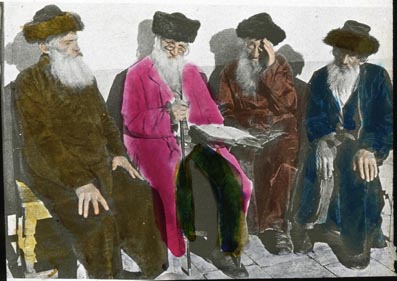Makos 11a.
- The Gemara states that the Arei Miklot need to be populated by ‘normal’ working people. Only a minority of the inhabitants can be *Shogeg refugees. (Amnesty, as we are now witnessing in the USA is not an option….. Only the passing away of the Kohen Godol cleans the slate and sets them free.)
Shogeg Refugee = inadvertent manslaughter.
If the majority of the inhabitants are Shogeg refugees then the city loses its status as in Ir Miklat.
The reason is that the Posuk says “And the killer who has fled to the city of refuge shall speak his matters to the ears of the elders of that city” (Joshua, 20:4)

This seems to imply that the purpose of the killer speaking to the elders is to convince them to take him in although he has killed. Now, this would be unnecessary if a majority of the populace were killers, for they would certainly have no reason to turn him away in such a case! Therefore, the verse establishing the parameters for the Arei Miklot states that the Arei Miklot need to be a cities where the populace are not mostly killers.
2- We mentioned the Minchas Chinuch who has a funny query: Say the current inhabitants are split exactly 50/50. Half are native non-refugees and half are Shogeg aliens.

Now, when this fellow stands at the gate and pleads for asylum – if they grant him his request……then with him joining half the population of refugees (making them the majority) he is basically entering a city that is now disqualified as an Ir Miklat! (Because the new majority are now Shogeg aliens).
He does say that he thinks that it still has the status of refuge if they take him in. This is because there was no majority before he got there.
3- Our Gemara mentioned briefly about the last 8 Pesukim in Devorim.

We mentioned that the Gemara (BB 15a, Menachos 30a) has two opinions as to who wrote them – Moshe Rabbeinu or Yehoshua. In any case, the Gemara concludes there, that these 8 Pesukim “only one person should read them”.
What does that mean?
Rabbeinu Meshulem explains that one person must read them unassisted, unlike other verses, where the official reader reads together with the person called to the Torah.
Rabbeinu Tam however, rejects this explanation. The entire Torah reading, as opposed to Megilla, can only be read by one person. Either the receiver of the Aliya or the Baal Koreh.

Rather, Rabeinu Tam asserts, we must explain the Gemara as Rashi does, which is you cannot split them into two separate Alios.
The Rambam has a different approach ”The eight verses at the conclusion of the Torah may be read in a synagogue when fewer than ten people are present. They are indeed all [integral parts] Torah and were related by Moses from the Almighty. However, since, on the surface, they appear to have been recited after Moses death, the [rules governing them] are different. Therefore, it is permissible for an individual to read them.”
Reacting the Ramabam’s view that a person can read it without a Minyan, the Ravad asks: “I never heard of such a thing. …..and where did the Minyan go exactly?”

Meaning to say “how did it happen that all of a sudden you don’t have a Minyan”. Therefore he explains the Gemra similarly to Rabeinu Tam.
4- Discussed the Tzemach Tzedek to refrain to add on Shabbos more than seven Alios. O”C 35.
5- The Gemara mentions that the reason the accidental killers stay in the Arei Miklat until the death of the Kohen Gadol is because the Torah is punishing the Kohen Gadol that he did not Daven for his people that no murder should occur during his tenure.
![[kohen+gadol.jpg]](http://4.bp.blogspot.com/_UfhW5hzhyQc/Rp_P8w-_fKI/AAAAAAAAAHs/6HJlFfrE9xk/s1600/kohen%2Bgadol.jpg)
We asked in Shiur- what exactly is the punishment? How are you punishing the Kohen Gadol by making his death conditional for all unintentional murderers to go free?